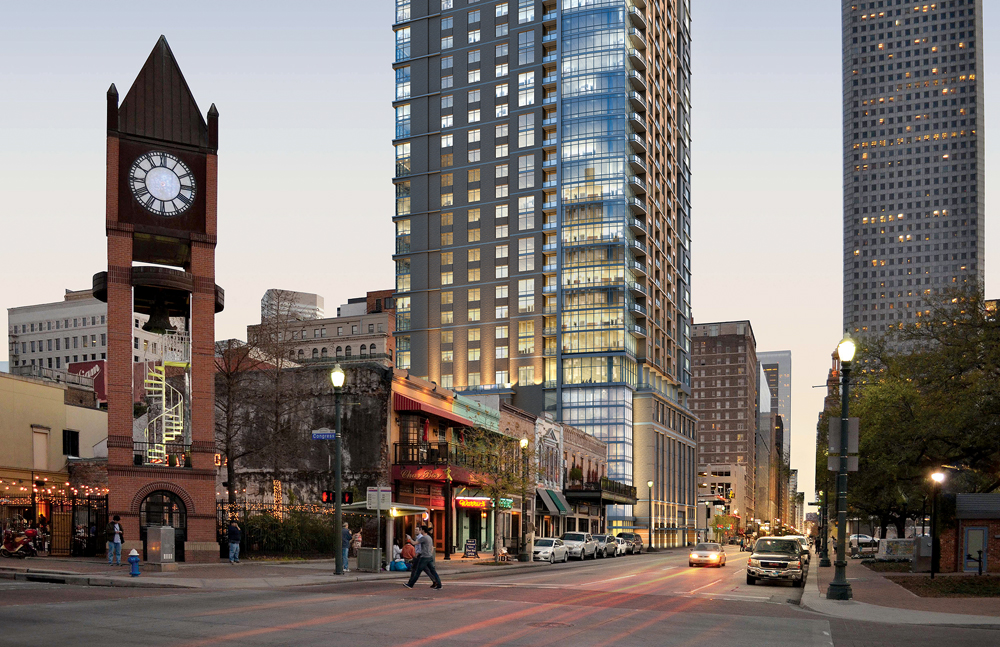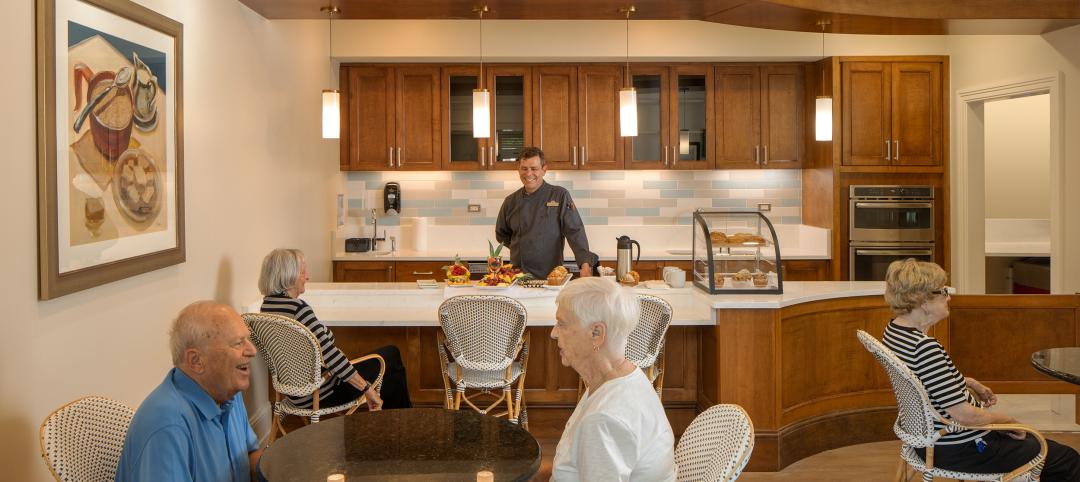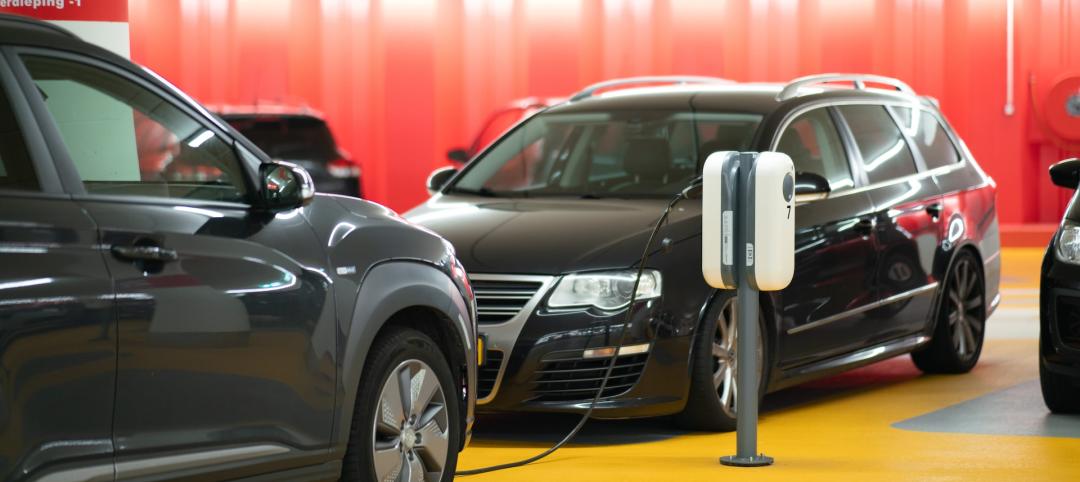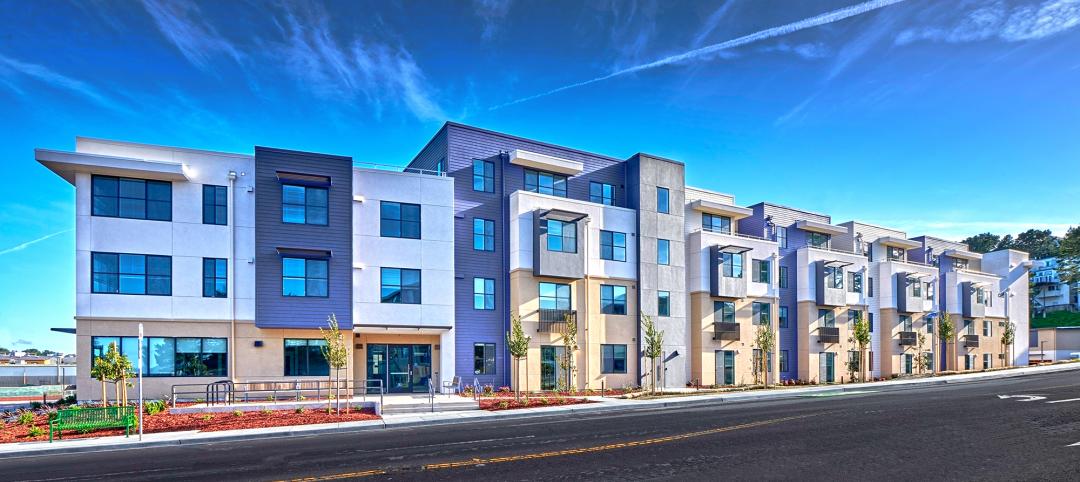The conventional wisdom about renters is that most of them would prefer to own their homes, and that many eventually will buy a house.
However, a survey of more than 25,000 adults—about one-third renters, two-thirds homeowners—found the renters to be more burdened by debt than homeowners and severely short of emergency savings. For many renters, a 20% down payment to secure a mortgage is a pipe dream; for some, even the government’s recent plan to bring back mortgages with 3% down payments might be a bridge too far.
The Financial Industry Regulatory Authority (FINRA), a nonprofit oversight organization authorized by Congress, conducted the study in 2012, and released its results last October.
For more on the multifamily housing sector, read BD+C's Special Report: "5 intriguing trends to track in the multifamily housing game"
In 2012, 36% of Americans were renters. The survey found them to be younger than homeowners; only 39% were married, compared to 63% of owners. Nearly three-fourths of renters (74%) had household incomes below $50,000, compared with 41% of owners.
The survey found renters to be less educated, and nearly twice as likely to be unemployed or temporarily laid off, than owners. Forty-two percent of renters are minorities, compared with 29% of owners.
About one in four renters (24%) said they found it “very difficult” to pay their bills, versus 12% of owners. Nearly half of renters (48%) said paying their bills was “somewhat difficult,” compared to 39% of homeowners.
Renters are burdened by a surfeit of debt. The survey found that renters were nine percentage points more likely than homeowners to carry credit card debt and nine percentage points more likely to carry student debt.
The difference was even more drastic for medical debt: 17 percentage points. (At the time the survey was taken, 68% of the renters said they had medical coverage, versus 85% of homeowners, but this was before the Affordable Care Act took effect.)
The scariest finding was that renters had practically no savings and live from paycheck to paycheck. Fifty-eight percent said they probably or definitely couldn’t come up with $2,000 in 30 days to cover an unexpected expense, compared to 29% of homeowners. Only 22% of renters (versus 50% of owners) said they had enough savings to cover three months’ expenses.
Related Stories
Multifamily Housing | Jan 12, 2023
8 noteworthy multifamily housing projects, including a refuge for unsheltered youth
Join us on a nationwide tour of notable new multifamily projects from around the country.
Senior Living Design | Jan 10, 2023
8 senior living communities that provide residents with memory care
Here are eight senior living communities that offer their residents memory care, an important service for residents who need this specialized care.
Government Buildings | Jan 9, 2023
Blackstone, Starwood among real estate giants urging President Biden to repurpose unused federal office space for housing
The Real Estate Roundtable, a group including major real estate firms such as Brookfield Properties, Blackstone, Empire State Realty Trust, Starwood Capital, as well as multiple major banks and CRE professional organizations, recently sent a letter to President Joe Biden on the implications of remote work within the federal government.
Multifamily Housing | Jan 9, 2023
New York City advances plan to build 500,000 new housing units
After New York Mayor Eric Adams announced a “Moonshot” plan to build 500,000 new housing units over the next 10 years in early December, he moved quickly to jumpstart the process.
Sustainability | Jan 9, 2023
Innovative solutions emerge to address New York’s new greenhouse gas law
New York City’s Local Law 97, an ambitious climate plan that includes fines for owners of large buildings that don’t significantly reduce carbon emissions, has spawned innovations to address the law’s provisions.
Fire and Life Safety | Jan 9, 2023
Why lithium-ion batteries pose fire safety concerns for buildings
Lithium-ion batteries have become the dominant technology in phones, laptops, scooters, electric bikes, electric vehicles, and large-scale battery energy storage facilities. Here’s what you need to know about the fire safety concerns they pose for building owners and occupants.
Multifamily Housing | Dec 29, 2022
San Jose is largest U.S. city to abolish minimum parking for new housing
San Jose, Calif., recently became the largest U.S. city to strike down minimum parking requirements for new housing development. The city reversed zoning devised in the 1950s that reputedly gave it the worst sprawl of parking space in northern California.
Codes and Standards | Dec 29, 2022
New York City multifamily owners concerned over fires caused by e-bikes
In 2022, there have been nearly 200 fires and six deaths in New York City caused by lithium-ion batteries used in mobility devices such as electric bikes and scooters.
Multifamily Housing | Dec 27, 2022
Traverse Apartments brings 281 sorely needed rental units to the Denver area
Traverse Apartments offers 281 units, designed by KTGY, is located in Lakewood, Colo.
Multifamily Housing | Dec 21, 2022
Bay Area school district builds 122 affordable apartments for faculty and staff
The 122 affordable apartments at 705 Serramonte, Daly City, Calif., were set aside not for faculty and staff at Jefferson Union High School District.

















